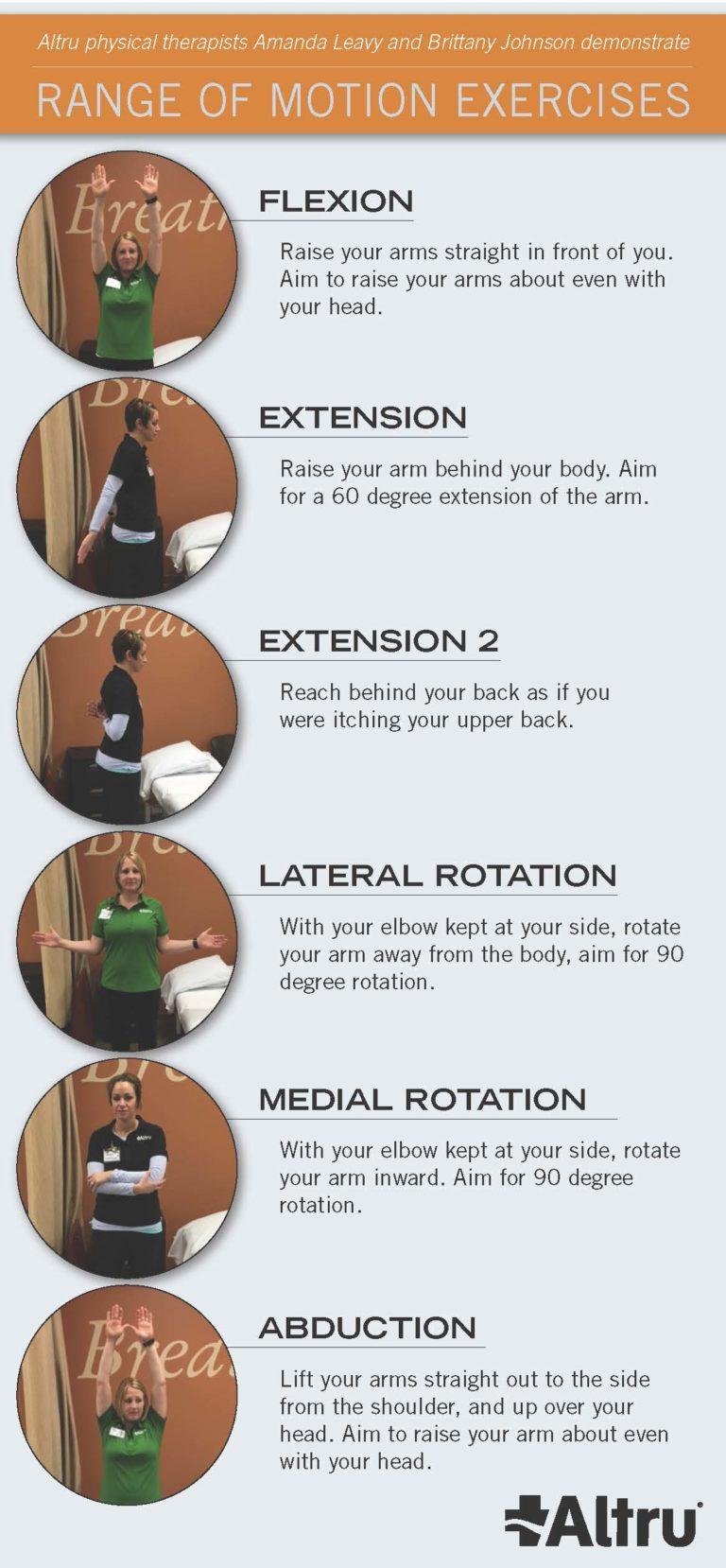
If you notice that you can no longer reach a shelf that you used to be able to or reach your arm out to catch something, you may be experiencing a loss of range of motion. Many people chalk this up to age or a lack of strength in the arm, but it could also be a sign of something more. Oftentimes, loss of range of motion is a factor in an orthopedic provider recommending shoulder replacement, so it’s not to be taken lightly. How do you know if your range of motion is normal, or if something is not right?
The shoulder joint is unique in that it has only one point of bone attachment to the rest of the body, in the clavicle, where it attaches to the scapula. This allows for a wide range of motion. Your provider or a physical therapist can perform a comprehensive range of motion test on you, but you can also start with this simple at-home assessment of different arm motions to gauge where you stand. Simply compare your range in one arm to the other. If one arm cannot reach the way the other can, you have a loss or lack of range of motion:
- Flexion: Raise your arm straight in front of you. Aim for at least a 90-degree angle from the body
- Extension: Raise your arm behind your body, as if you were preparing to dive into a pool. Aim for a 60-degree extension of the arm. Or, reach behind your back as if you were itching your upper back.
- Lateral Rotation: With your elbow kept at your side, rotate your arm away from the body, aim for 90-degree rotation.
- Medial Rotation: With your elbow kept at your side, rotate your arm inward, as if you were itching your opposite elbow. Aim for 90-degree rotation.
- Abduction: Lift your arm straight out to the side from the shoulder. Aim for your arm to be parallel to the ground.
Beyond this assessment, pay attention to how you can perform functional movements. People with a normal range of motion should be able to do the following actions without pain and with full range.
- Grabbing something from a shelf
- Hanging a picture
- Brushing your teeth
- Getting your wallet out of a back pocket
- Taking off your bra
If you are not able to perform these actions, your range of motion could be compromised.
Other Factors
If you find that your range of motion is lacking, it’s time to consider other factors that might be affecting your shoulder health. Range of motion loss accompanied by one or more of the following makes you a good candidate for an appointment with a provider at Altru Advanced Orthopedics.
- Pain. If you have sharp pain in your shoulder when you attempt movement and continued pain, even on a small scale, when you are at rest, you could have underlying injury or illness of the joint. If you find it hard to sleep because of shoulder pain, this is a good indicator that you should see a provider.
- Injury. If your loss of motion and/or pain follows an injury, you should certainly see an orthopedic provider. Tears of the rotator cuff, labrum, fractures, and beyond should always be evaluated soon after the injury is incurred. Even when minor, injuries can lead to further damage when not cared for properly.
- Arthritis. Arthritis is a degenerative condition that causes pain and stiffness in the joints as the cartilage wears down over time. Your provider will likely recommend non-operative treatments first, but over time these may no longer be enough. If you have been seeking non-operative treatments and your range of motion continues to decline, it might be time to consider a shoulder replacement.

Treatments Available
If you determine that an appointment with an expert at Altru Advanced Orthopedics is the right next step, you and your provider will determine the best course of action to treat your shoulder. My colleagues and I aim to avoid surgery whenever possible, so we will work through non-operative options first. These might include heat, ice, and rest, Tylenol or NSAIDS, physical therapy, or steroid injections.
If after a few months of treatment, your pain does not decrease or your range of motion does not improve, we might suggest looking at options for shoulder surgery or replacement. Depending on the severity of your pain, movement insufficiencies, or injury, various surgical and replacement options are available, including rotator cuff repairs and partial or total shoulder replacements.
Altru Advanced Orthopedics now offers an advanced procedure preparation technique, the Signature System Glenoid Guide, to ensure your shoulder replacement is customized for you. This pre-operation image-based planning guide allows us to plan and fit your replacement based on your unique joint. This is highly beneficial for those with more complex procedures, who can now stay close to home for care.
Your shoulders play a big role in your daily life. From high-fives and handshakes to tennis and golf swings, if they aren’t functioning to their potential, you are missing out.







